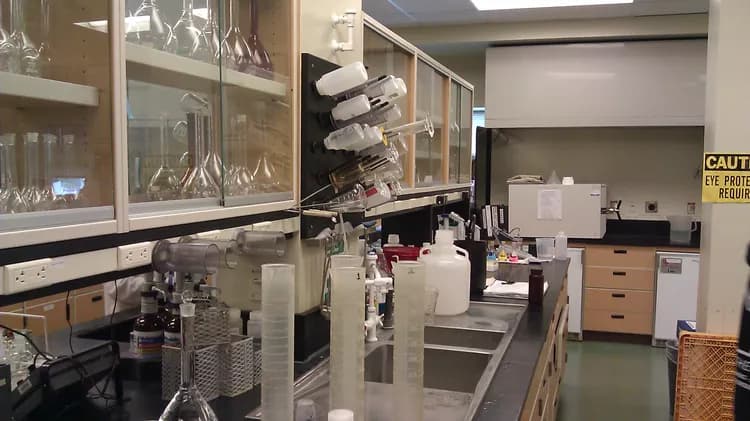What are the other Names for this Test? (Equivalent Terms)
- EC 1.1.1.27 Test
- Lactic Acid Dehydrogenase Test
- Lactic Dehydrogenase Test
What is Lactate Dehydrogenase Test? (Background Information)
- Lactate dehydrogenase (LDH) is a zinc containing enzyme that is located in the cytoplasm of all cells
- It consists of two active sub-units, namely H and M. The designations ‘H’ is for heart, and ‘M’ is for muscle
- There are five isoenzymes ranging from LD1 to LD5, depending on the combination of H and M. Different iso-forms of the enzymes are present in different concentrations, in the body parts:
- LD1 is found predominantly in red cells and heart
- LD2 is predominantly found in heart, red cells, serum, and kidney
- LD3 is found in the lung and kidney
- LD4 in skeletal muscle, lung, and kidney
- LD5 in liver and skeletal muscles
- The LD1 to LD5 isoenzymes can also be detected in a smaller degree in other tissue types also.
Generally, lactate dehydrogenase is present in blood, in very small quantities. LDH is also released into blood, when there is tissue damage. Since, different isoenzymes of LDH are present in different proportions, in different parts of the body; damage to a particular organ would release a particular type of LDH in a higher quantity. Based on the lactate dehydrogenase isoenzymes, the type of tissue damaged can be ascertained.
What are the Clinical Indications for performing the Lactate Dehydrogenase Test?
- Lactate Dehydrogenase Test is usually performed when tissue damage is suspected
- LDH isoform can also be ordered in individuals with symptoms of a heart attack. However, due to the advent of better cardiac biomarkers, the LDHTest is not routinely used to assess cardiac damage
- LDH levels may be helpful in diagnosing hemolytic anemia, liver failure, and kidney failure
How is the Specimen Collected for Lactate Dehydrogenase Test?
Specimen required: Blood.
Process: Insertion of needle into a vein (arm).
Preparation required: No special preparation is required prior to testing.
What is the Significance of the Lactate Dehydrogenase Test Result?
It is very important to note that the Lactate Dehydrogenase Test is a highly nonspecific test. Given that different types of LDH isoenzymes are present in different tissue types, it is difficult to ascertain the exact site of cellular damage
In combination with other tests, LDH can provide vital clues to the type of tissue damaged:
- If the markers for liver damage and heart damage are within normal limits, then an elevated LDH can be due to destruction of red cells, white cells, lymphomas, destruction of lung, or renal failure
- LDH is elevated in a specific type of pneumonia, namely pneumocystis carinii pneumonia. It is usually normal in other pneumonia types
- An elevated LDH can also be seen in stroke, pancreatic damage (pancreatitis), and due to the use of certain drugs. A decreased level of lactate dehydrogenase is not clinically significant
- Occasionally low levels of LDH can be noted, when there is an intake of large quantities of vitamin C
The laboratory test results are NOT to be interpreted as results of a "stand-alone" test. The test results have to be interpreted after correlating with suitable clinical findings and additional supplemental tests/information. Your healthcare providers will explain the meaning of your tests results, based on the overall clinical scenario.
Additional and Relevant Useful Information:
- The M and H sub-units of LDH are encoded by different genes. The M sub-unit is located on chromosome 11; H sub-unit is located on chromosome 12
- Lactate dehydrogenase can also be elevated in seminomas (in males) and dysgerminomas(in females)
Certain medications that you may be currently taking may influence the outcome of the test. Hence, it is important to inform your healthcare provider, the complete list of medications (including any herbal supplements) you are currently taking. This will help the healthcare provider interpret your test results more accurately and avoid unnecessary chances of a misdiagnosis.
Related Articles
Test Your Knowledge
Asked by users
Related Centers
Related Specialties
Related Physicians
Related Procedures
Related Resources
Join DoveHubs
and connect with fellow professionals


0 Comments
Please log in to post a comment.